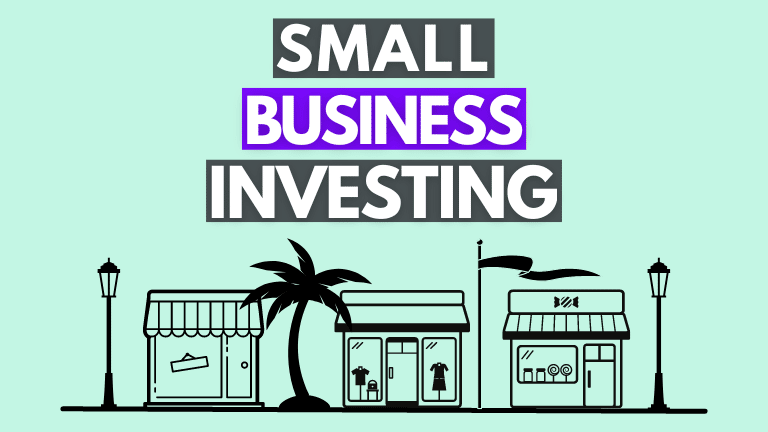In the 19th century, the world witnessed the emergence of innovative entrepreneurs in healthcare such as Florence Nightingale who established the first nursing school in the world. Fast forward to the 21st century, healthcare has evolved significantly, there has been an increase in investments within the health sector due to various factors such as changes in policy, new technology and crisis. Dating back to 2019 when there was a global pandemic, COVID-19, the health sector was completely overwhelmed. This in return involuntarily compelled governments, organisations and various stakeholders to invest more in the health sector. Entrepreneurs also took up social responsibility and started to invest in public health on a large and small scale.
CURRENT STATE OF PUBLIC HEALTH ENTREPRENEURSHIP
Public health entrepreneurship is considered as a unique business model designed to tackle pressing health and social issues and it is based on the concepts of social entrepreneurship, through which business professionals advance social change by adopting missions that are oriented towards promoting social welfare. Public health entrepreneurship is centred on investments that will have an impact towards health promotion, disease prevention, and the social determinants of health.
According to a report by the (World Health Organization) before the COVID-19 pandemic investments in the public health sector grossed at approximately $8.3 trillion. This figure includes investments from governments and international donors. In terms of specific investments in health innovation and entrepreneurship, private sector investments in global health research and development (R&D) were estimated to be about $159.9 billion, with $156.7 billion from pharmaceutical companies and $3.2 billion from venture capital funds in 2018.
By 2023, various research reports indicated that health system investments had grown significantly, with substantial investments in technology and value-based care models particularly from markets like China and India. Venture capital investments in digital health alone raised over $140 billion, $1.64 billion was raised for disease treatment products and services, with another $1.59 billion for nonclinical workflow solutions. The global market for health systems technology (HST) also rebounded, with an estimated profit pool of $51 billion in 2021.
As of 2024, entrepreneurs have invested hundreds of billions of dollars into various initiatives, with substantial portions directed towards the integration of AI into healthcare, digital health and med-tech innovations in public health. The investments have also focused on developing both products and services. The shift towards digital solutions has driven much of this investment, showcasing the industry's resilience and adaptability post-pandemic.
NOTABLE KEY PLAYERS IN PUBLIC HEALTH ENTREPRENEURSHIP
This section provides information about entrepreneurs who are making a big impact in public health investments globally, but are not ranked in a hierarchy.
1. Biobot Analytics
Founded by Mariana Matus and Newsha Ghaeli. This company Specializes in wastewater epidemiology to track public health trends. It played a crucial role during the COVID-19 pandemic by detecting SARS-CoV-2 RNA in wastewater, securing a contract with the CDC, and raising $20 million to expand its platform.
2. PhagePro
Co-founded by Minmin Yen and Andrew Camilli. The brand focuses on developing bacteriophage-based treatments to prevent bacterial infections like cholera. The company's work concentrates on transforming lab research into practical treatments, addressing health needs in low-resource settings.
3. MassVentures
Led by Vinit Nijhawan. This company is a venture capital firm focusing on biotech and public health startups. Invests in university spinouts and innovative public health solutions, bridging the gap between research and marketable products.
4. African Impact Initiative - Health Entrepreneurship Challenge
This is a collaboration between the African Impact Initiative and several African universities, supported by the MasterCard Foundation. It is a challenge that funds and mentors health-focused start-ups in Africa and provides up to $25,000 CAD in funding per venture and facilitates extensive training and mentorship.
5. Amref Health Africa
It is one of Africa's leading health NGOs that focuses on health system strengthening, training, and advocacy. The main goal is to improve health services through training and health system innovations, impacting millions across the continent. So far they have made substantial investments in community health programs and innovations, driving both health outcomes and economic growth.
6. 44 Ventures
A venture capital firm dedicated to African health tech start-ups. They invest in early-stage health technology companies that aim to improve health access and outcomes through innovative technology by providing crucial funding and support for scaling health tech solutions and facilitating growth and impact in underserved regions.
CHALLENGES SO FAR
Public health entrepreneurship, like any other enterprise, faces a multitude of challenges spanning social, political, financial, and cultural dimensions. These challenges can hinder the growth and impact of health ventures if not adequately addressed.
1. Social and Cultural
In some situations, entrepreneurs are expected to navigate complex social landscapes, cultural stigmas and misinformation about certain health conditions, like mental health and infectious diseases which may be complicated. Differences in language, literacy levels, and health behaviour also pose a challenge.
2. Political
Regulatory frameworks can stifle innovation and complicate the scaling of health ventures. Insufficient government support and funding can also limit entrepreneurs. Political instability and corruption in some regions is a drawback.
3. Financial
Securing funding is one of the most significant barriers for health start-ups. Investors often perceive health ventures as high-risk due to long development timelines and regulatory uncertainties. Developing sustainable business models in the health sector is challenging and scaling health innovations requires substantial investment in infrastructure and human resources, which is often beyond the reach of many without financial backing.
These are some of the dominant challenges. However, addressing these challenges requires a multifaceted approach that combines innovation, collaboration, and strategic planning. By tackling social, political, financial, and cultural barriers, public health entrepreneurs may be able to create sustainable and impactful health solutions that benefit communities.
WAY FORWARD, THE FUTURE.
Drawing an inference from the current state of circumstances, it is evident that the future of public health entrepreneurship is promising, driven by continuous technological advancements and growing recognition of the need for innovative health solutions. As time passes, we will surely witness Increased Investment in Digital Health technologies. AI-driven solutions, telemedicine, and remote monitoring tools. In addition, there will be a stronger emphasis on preventive healthcare, with innovations aimed at early disease detection and prevention gaining traction. Entrepreneurs focusing on wellness and preventive care will attract more attention and funding. Furthermore, Global Collaboration will increase, facilitating the exchange of knowledge, technology, and resources. This in return will also facilitate the integration of Health and Social Services. Public health solutions will increasingly integrate with social services to address the broader determinants of health.
In a nutshell, public health entrepreneurship is now on the rise and this is a positive thing. The end goal of a public health entrepreneur is to create a product, service, or technology that fills gaps in existing healthcare or public health systems. This is done by identifying problems, conducting needs assessments, or elevating questions within the field and creating a response through business offerings. Entrepreneurs are playing a significant role in taking part on making this world a better place, reflecting that health is wealth.






